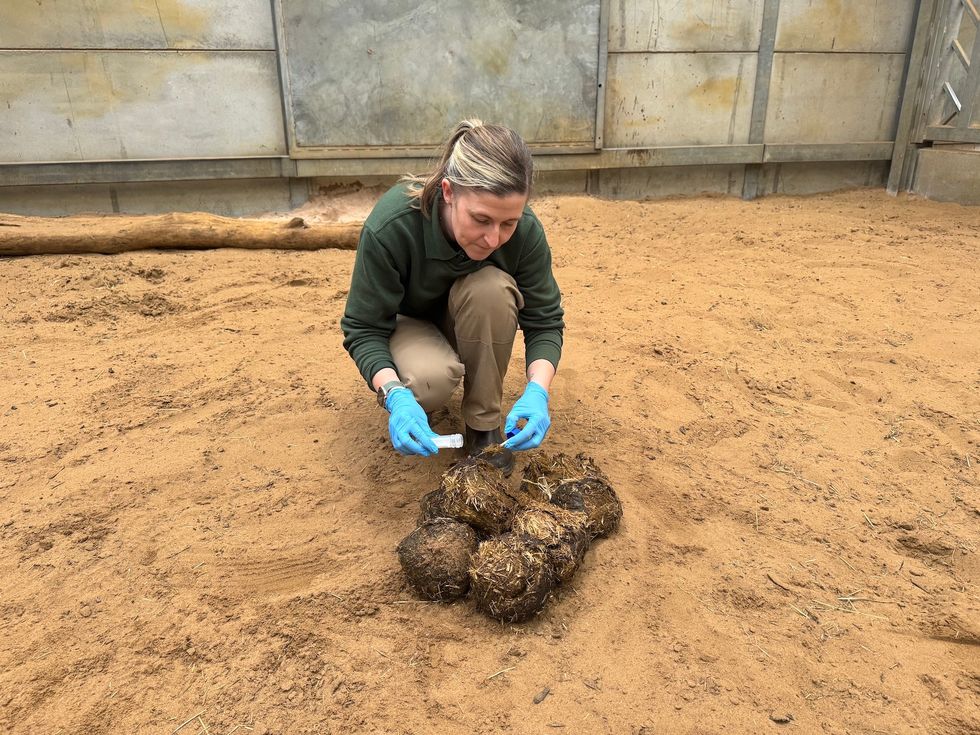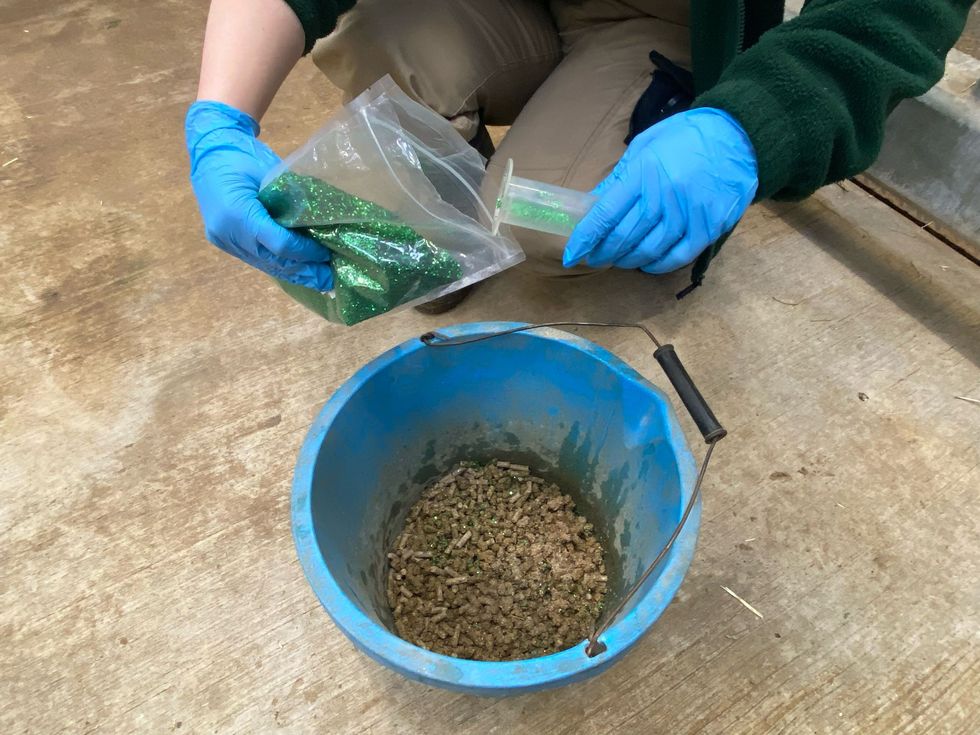
Blackpool Zoo has been using coloured edible glitter to identify female elephant dung and help determine whether or not they are pregnant.
Tara, Noorjahan and Esha, all female Asian elephants, have consumed food containing a different colour of edible glitter to help zookeepers identify each of their faeces.
The dung is being collected under a recommendation from the European Endangered Species Programme and to help zookeepers keep track of the females’ reproductive cycles, which occur every 13 to 16 weeks, and determine if they are pregnant.
Their stool samples are collected twice a week and sent to a research laboratory at Chester Zoo for hormone analysis.

The research is part of the zoo’s Project Elephant, which aims to preserve the Asian elephant species as it was classed as endangered on the International Union for Conservation of Nature (IUCN) red list since 1986, according to Blackpool Zoo.
Adam Kenyon, section head at Blackpool Zoo, said he is excited to see the results from the most recent samples, which are expected to arrive in the coming weeks.
He said: “We have used edible glitter to track hormone levels of many of our animals, so it is a tried and tested method for these types of investigations.
“The team at Chester Zoo have been working hard to analyse the samples through a science called faecal endocrinology and we are hoping to get the findings soon.
“This highly intelligent and complex species is endangered in the wild and by collaborating, sharing research and exchanging ideas, zoos play a crucial role in the global effort to protect and conserve these majestic animals.”
Project Elephant Base Camp is the UK’s largest indoor elephant house with the aim of meeting the complex welfare needs of the mammals and marks Blackpool Zoo’s largest investment.
Residents of the enclosure include Kate, who was the first moved to the facility in 2017, Minbu, Noorjahan, Tara and Esha, who all joined in 2018, and the zoo’s first male elephant, Emmett, who arrived in 2019.
Mr Kenyon hopes looking after the six elephants will help the zoo to breed more Asian elephants.

“Project Elephant Base Camp was our largest ever investment and from the earliest stages of planning our aim was to develop a programme for the successful care and management of a multi-generational elephant herd,” he said.
“The facility combines the UK’s largest indoor elephant house with several outdoor habitats, all of which were meticulously designed to support the complicated needs of Asian elephants.
“In 2020 we announced the successful integration of all six of our elephants and we have been continually monitoring their social development. With the help of science, we now hope this will lead to breeding success.”
The population of the Asian elephant has declined by at least 50% over the last three generations, according to Blackpool Zoo.
The zoo said this is estimated to be around 60 to 75 years and attributes loss of habitat, habitat degradation and poaching as reasons for the mammals’ decline.













